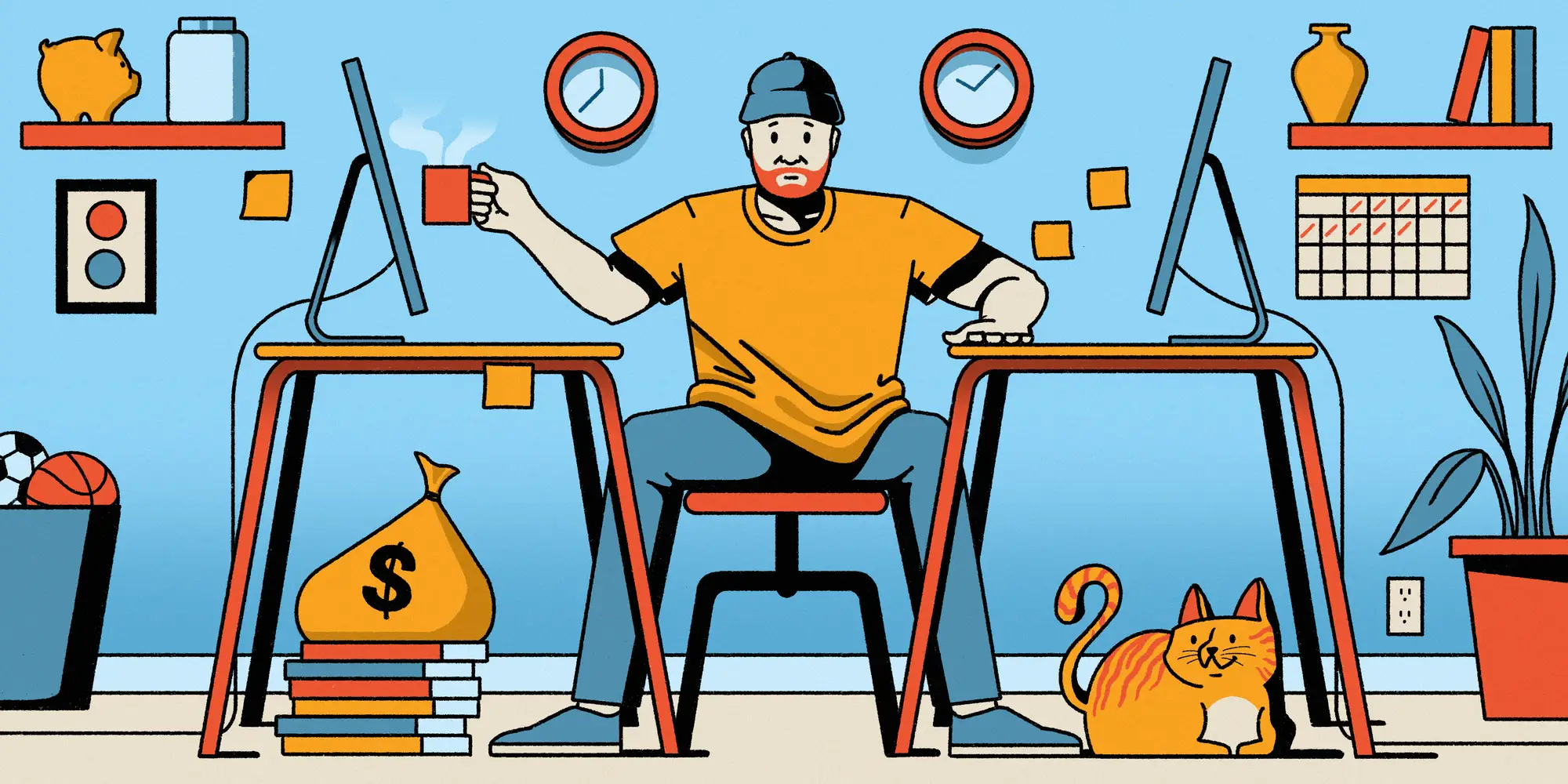Overemployment as anti-precarity strategy
Historically, the way we fought back against oppressive employers and repressive regimes was to band together into unions. The collective bargaining power would help improve conditions and pay.
These days, in a world of the gig economy and hyper-individualism, that kind of collectivisation is on the wane. Enter remote workers deciding to take matters into their own hands, working multiple full-time jobs and being rewarded handsomely.
It’s interesting to notice that it seems to be very much a male, tech worker thing though. Of course, given that this was at the top of Hacker News, it will be used as an excuse to even more closely monitor the 99% of remote workers who aren’t doing this.

Holding down multiple jobs has long been a backbreaking way for low-wage workers to get by. But since the pandemic, the phenomenon has been on the rise among professionals like Roque, who have seized on the privacy provided by remote work to secretly take on two or more jobs — multiplying their paychecks without working much more than a standard 40-hour workweek. The move is not only culturally taboo, but it's also a fireable offense — one that could expose the cheaters to a lawsuit if they're caught. To learn their methods and motivations, I spent several weeks hanging out among the overemployed online. What, I wondered, does this group of W-2 renegades have to tell us about the nature of work — and of loyalty — in the age of remote employment?Source: ‘Overemployed’ Workers Secretly Juggle Several Jobs for Big Salaries | Business Insider[…]
The OE hustlers have some tried-and-true hacks. Taking on a second or third full-time job? Given how time-consuming the onboarding process can be, you should take a week or two of vacation from your other jobs. It helps if you can stagger your jobs by time zone — perhaps one that operates during New York hours, say, and another on California time. Keep separate work calendars for each job — but to avoid double-bookings, be sure to block off all your calendars as soon as a new meeting gets scheduled. And don’t skimp on the tech that will make your life a bit easier. Mouse jigglers create the appearance that you’re online when you’re busy tending to your other jobs. A KVM switch helps you control multiple laptops from the same keyboard.
Some OE hustlers brag about shirking their responsibilities. For them, being overemployed is all about putting one over on their employers. But most in the community take pride in doing their jobs, and doing them well. That, after all, is the single best way to avoid detection: Don’t give your bosses — any of them — a reason to become suspicious.
[…]
The consequences for getting caught actually appear to be fairly low. Matthew Berman, an employment attorney who has emerged as the unofficial go-to lawyer in the OE community, hasn’t encountered anyone who has been hit with a lawsuit for holding a second job. “Most of the time, it’s not going to be worth suing an employee,” he says. But many say the stress of the OE life can get to you. George, the software engineer, has trouble sleeping at night because of his fear of getting caught. Others acknowledge that the rigors of juggling multiple jobs have hurt their marriages. One channel on the OE Discord is dedicated to discussions of family life, mostly among dads with young kids. People in the channel sometimes ask for relationship advice, and the responses they get from the other dads are sweet. “Your regard for your partner,” one person advised of marriage, “should outweigh your desire for validation."